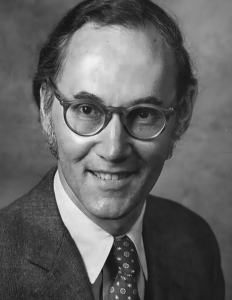 The Winston Fellowship, which nurtures and supports the professional growth of new peacebuilders, is awarded to a select number of international or indigenous participants who attend the Summer Peacebuilding Institute. The fellowship covers tuition; visa, course and materials fees; and transportation costs.
The Winston Fellowship, which nurtures and supports the professional growth of new peacebuilders, is awarded to a select number of international or indigenous participants who attend the Summer Peacebuilding Institute. The fellowship covers tuition; visa, course and materials fees; and transportation costs.
The fellowship is derived from a grant in 1999 to Eastern Mennonite University from the Winston Foundation for World Peace, which was founded by Robert Winston Scrivner. Before his death, Scrivner created the Winston Foundation for World Peace with his own money. The foundation wound down its operations in 1999.
Since that time the award recipients, called Winston Fellows, have included 29 peacebuilders from 25 countries.
Scrivner favored activism over scholarship, and wanted the focus of the foundation to be “a place where the most promising individuals or fledging groups would naturally turn for the first or very early support” in the work of peacebuilding.
A graduate of Harvard University and Harvard Law School, he left corporate law to work for the Rockefeller Brothers Fund and eventually became executive director of the Rockefeller Family Fund.
Scrivner guided the fund to consider creative, risk-taking grants and to support social change agents. His colleagues described him as a visionary concerned about big issues in society. He advocated “telling truth to power,” by urging social and political leaders to acknowledge the consequences of their actions on all citizens and on the future of the planet. Scrivner believed in problem-solving through reasonable dialogue and in the “troublemaker school” of social and political change. He was a prime catalyst in the formation of the arms control movement of the 1980s. He also saw the importance of educating people about the devastating effects of nuclear winter. He was one of the earliest supporters of the International Physicians for Prevention of Nuclear War (IPPNW), a group that would later receive the Nobel Peace Prize.
Scrivner encouraged the Rockefeller Family Fund to support class action lawsuits, including ones involving cigarette smoking, the toxic substance dioxin and Agent Orange.
Bob Scrivner died in 1984, but his light continues to shine through the initiatives that he set in motion and that are continuing today.